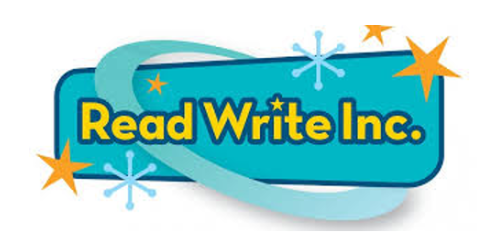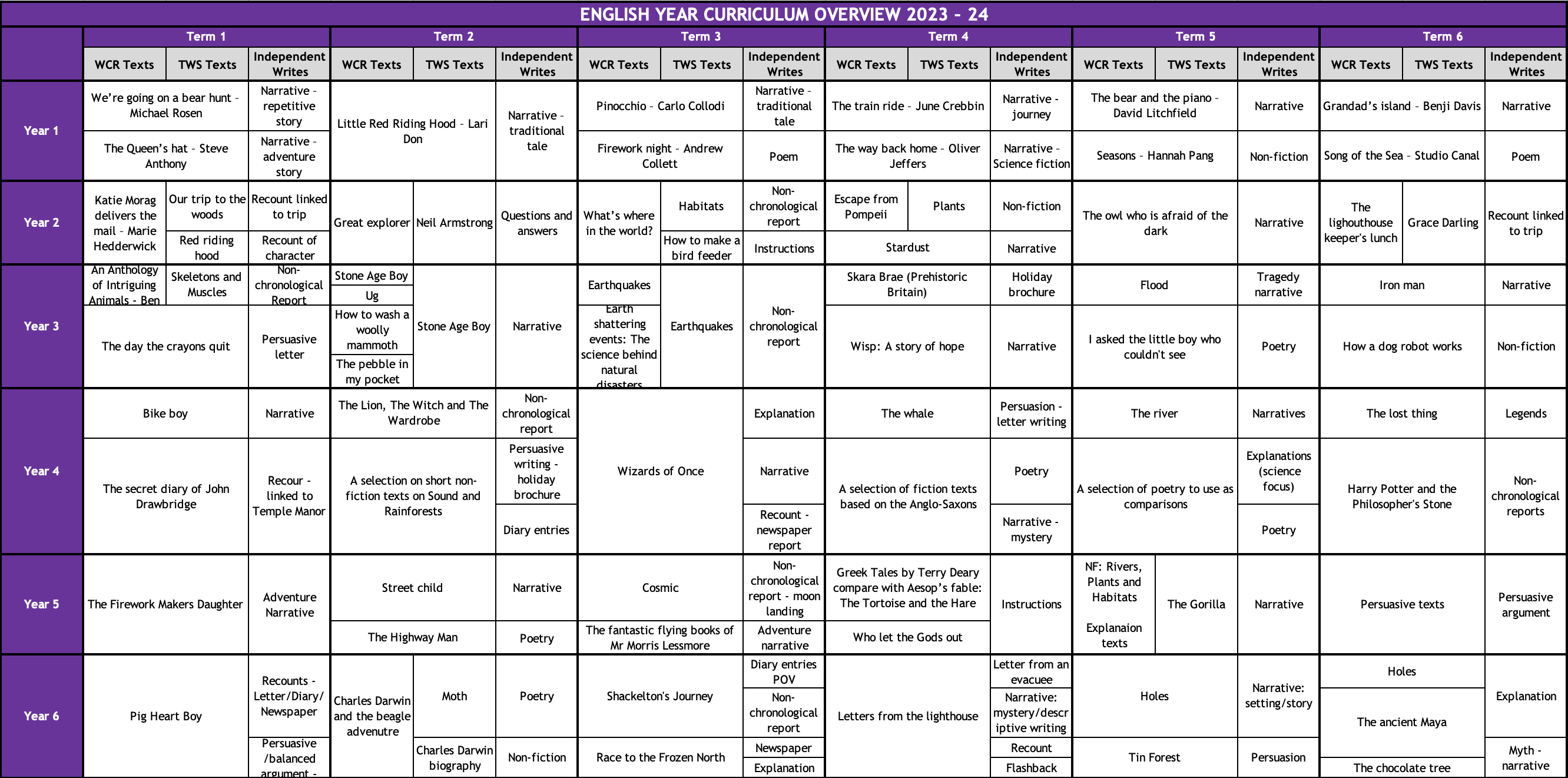The English curriculum at Temple Mill Primary School serves as a cornerstone in fostering language proficiency, literary appreciation, and effective communication skills among our students. Aligned with our school motto ‘Give your best, expect success’, the English curriculum is designed to empower students to strive for excellence in their language abilities and to cultivate a mindset of perseverance and achievement.
Through a rich and diverse range of texts, writing tasks, and speaking and listening activities, our English curriculum not only equips students with the essential skills needed for academic success but also nurtures their creativity and critical thinking capabilities. By exploring different genres, styles, and forms of writing, students are encouraged to express themselves confidently and imaginatively, reflecting the spirit of our school motto.
Furthermore, the English curriculum at Temple Mill Primary School emphasises the importance of collaboration, feedback, and continuous improvement, instilling in our students the values of resilience and growth. By setting high expectations and providing support and guidance, we enable our students to realise their potential and achieve success in English and beyond.
Phonics and Early Reading

Here at Temple Mill Primary School we aim for all our children, including SEN and disadvantaged children, to become fluent, confident readers who are passionate about reading.
The reading programme we use is Read Write Inc. This is a structured, synthetic phonics based programme, designed to ensure all children aged 4 - 7 learn to read accurately and fluently.
Synthetic phonics is a method of teaching where words are broken up into the smallest units of sound (phonemes). Children learn to make connections between the written representation (graphemes) and the sounds of spoken language (phonemes). Fred the Frog helps the children learn to read – poor Fred can only say sounds and is not able to pronounce whole words!
As soon as children enter our Reception class, they begin to learn the sounds for each letter of the alphabet plus some digraphs (ch, th, sh, ng and nk). Alongside this, they are taught to blend the sounds together to read words. For example, the first set of sounds they learn are ‘m, a, s, t, d’ – once they know these, they learn how to blend them together to make words such as ‘mat, sad, sat’. Reading books are introduced once the children are able to orally blend independently. Prior to that, picture books are sent home to develop their storytelling skills.
During RWI sessions, children use their knowledge of phonemes and are encouraged to have a go at writing words by sounding them out and recording the sounds they hear. This takes place during teacher led sessions and there are also plenty of opportunities during child-initiated sessions, with a range of materials and writing prompts available.
From the beginning of Reception, children promptly begin whole class daily phonics lessons. From the end of the Autumn Term, the children are split into small groups that are matched to their needs and are regularly assessed informally and formally. They begin to learn more complex sounds and to recognise how groups of letters sound in words i.e. ‘igh’ as in ‘night’.
As children work through the program, they continue to work on more complex sounds, building up their ability to read more and more complicated words until they complete the Read Write Inc. programme.
They continue to be regularly assessed and work in small groups daily. The reading books they use in daily sessions and those they take home are closely matched to the sounds to their reading ability; pupils are never asked to read a book that contains sounds they have not already been taught.
We expect all children to become fluent readers. For those pupils who have not completed the Read Write Inc. programme, we ensure they receive daily reading support until they have caught up with their peers.
For more information about Read Write Inc please follow the link Parent guide to Read Write Inc. Phonics - Oxford Owl
Speaking and Listening
At Temple Mill, the aim for Speaking and Listening is to provide a curriculum that fosters confident, articulate, and respectful communicators who can express themselves effectively in a variety of contexts. The school aims to create a rich language environment that celebrates diversity and promotes active listening, enabling pupils to engage thoughtfully with a range of spoken language forms and develop their oracy skills across subjects.
Reading
Reading at Temple Mill fosters a love for literature, develop critical thinking skills, and ensure every pupil becomes a proficient reader. We aim to create an inclusive reading environment that celebrates diversity and promotes a range of texts to engage and challenge all learners. Our curriculum is designed to immerse pupils in high-quality fiction, non-fiction, and poetry to broaden their horizons and deepen their understanding of the world around them. We aspire for every child to leave primary school with a lifelong passion for reading and the skills necessary to succeed academically and beyond.
Writing
Temple Mill ignites a love for writing, developing pupils' skills across various genres, and ensuring that writing is purposeful, engaging, and inclusive for all learners. The curriculum is designed to progressively build upon pupils' prior knowledge, ensuring a clear and structured sequence of learning objectives that are ambitious and cater to the needs of every child. Through a rich and varied curriculum, pupils are exposed to high-quality texts, vocabulary, and writing opportunities that inspire creativity, critical thinking, and a deep understanding of language. The intent is not just to meet academic standards but to nurture confident and independent writers who can express themselves effectively in different contexts.
Curriculum Overview
Key Texts for Nursery & Reception
|
Year Group |
T1 key texts |
T2 key texts |
T3 key texts |
T4 key texts |
T5 key texts |
T6 key texts |
|
Nursery |
Fiction So Much Love Wer’e Going on a Bear Hunt Marmalade The Colour Monster Non-fiction People who help us-police officer People who help us- Dentist |
Fiction Kipper’s Birthday The Princess and the Pea Rosie’s Walk Kipper’s Christmas Eve How to Catch a Star
Non-Fiction The Nativity Story Rama and Sita |
Fiction Mr Gumpy’s Motor Car Amazing Aeroplanes Oi! Get off our Train The Train Ride Welcome to Alien School All aboard the London Bus |
Fiction Oliver’s Vegetables The Growing Story The Enormous Turnip Sunflower House Jack and the Beanstalk The Easter Story
|
Fiction The Very Hungry Caterpillar The Monkey Puzzle Super Worm What the Ladybird Heard Spider Sandwich
|
Fiction Goldilocks and the Three Bears Three Little Pigs Three Billy Goats Gruff Little Red Riding Hood Hansel and Gretel
|
|
Reception |
It’s Good to be different Owl babies Ruby worries The colourful Monster So Much Love Supertato People who help us-police officer People who help us- Dentist
|
Kipper’s Birthday The scarecrow’s wedding Rama and Sita The Nativity Story The Jolly Christmas Postman Proudest Blue
|
Penguin Lost and found Harry and the bucketful of dinosaurs How to grow a dinosaur Flinn and the pirate dinosaur I wanna igunna Night pirates If Sharks Disappeared |
Handa’s Surprise Enormous Turnip Oliver’s vegetables Oliver’s fruit salad Jack and the Jellybean Katie and the Sunflower |
Hungry Caterpillar The Snail and the Whale Yucky worms Christopher’s caterpillars Bad tempered ladybird |
Lady bird favourite rhymes Goldilocks and the three bears Cinderella (John Kurtz) The gingerbread man Pigs May Fly |


